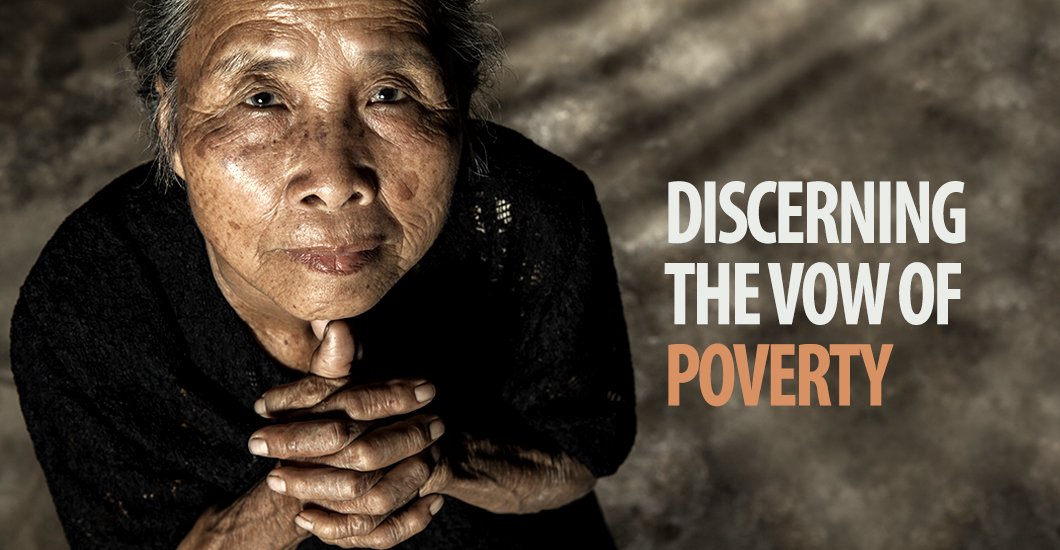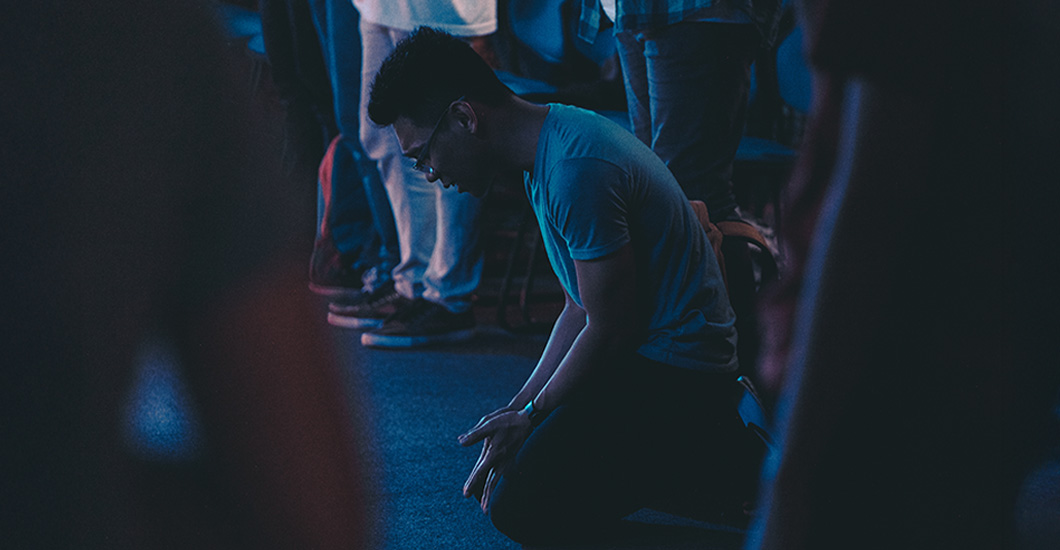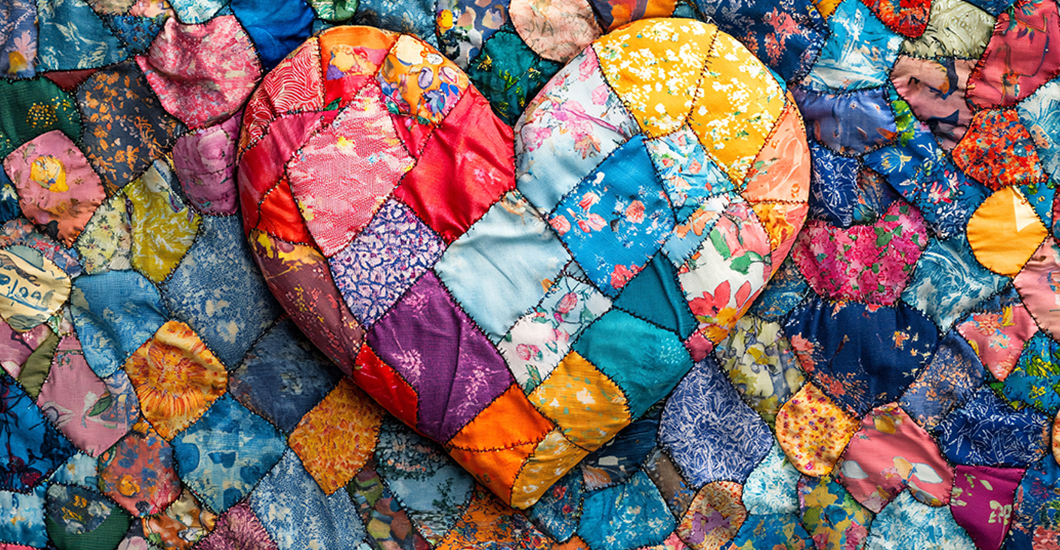Trending Articles
Discerning the Vow of Poverty
“I couldn’t do without my…car, own place, movie collection, ____________.” In the poll I ran recently, this statement was checked off by a number of people as a main reason that they do not consider religious life. That is not surprising in our culture, which is materially obsessed.
When I entered the convent, I was too young to own a house or a car. But I did give away my music collection, my books, and pretty much everything I owned except a few clothes and some holy cards which I brought with me. Was it easy? Not at first. But it was incredibly freeing. I see the vow of poverty as an amazing trade: as religious, we “trade in” the right to possess material goods, and we receive the gifts of a unique intimacy with and a closer following of Christ.
(As an aside, poverty has many practical benefits for a religious too—for example, poverty helps me to be available to be sent on mission anywhere, because I am not tied to personal possessions or particular places.)
I think that the vow of poverty is perhaps the easiest vow to understand today. People are more aware of the extremes in the lifestyles of the minority who are wealthy and the vast numbers of people who are poor. The stats for global hunger and poverty are shocking:
◗ nearly half of the world’s population (three billion people) live in poverty
◗ more than one billion of the people living in poverty are children
◗ 22,000 children die every day because they are too poor to receive what they need
◗ hunger is the number one cause of death in the world today
◗ more than 750 million people do not have adequate access to clean drinking water
Sharing what we have with others is the only way that everyone will have what they need. Choosing to make sacrifices—giving up material possessions—in order to provide necessities of life for others is fairly common, but it needs to become part of the everyday life of every Christian—actually, of every person in the world who has a secure place to live, and enough to eat and drink. Religious life is not just a helpful witness to encourage others to share like this, but as religious, we live in genuine solidarity with those who live in material and spiritual poverty.
Other easily-understood motivations for living a poor or simple lifestyle are:
◗ Living the vow of poverty is a way of life that preserves or restores the resources of the earth, which is part of the Church’s official social teaching.
◗ Pop culture today advocates the wisdom of simplifying or de-cluttering our lives as helpful in living with greater focus and purpose.
The Religious Vow of Poverty
The main reason a religious takes the vow of poverty is to more closely imitate Jesus Christ, the Poor One, both in His poverty and in His absolute trust in the Father. For me, the vow of poverty is not always easy, but I have found it helpful and freeing on so many levels:
◗ A religious has nothing of his or her own, but shares everything in common with his or her community. The community then provides for the needs of each religious. It is not that I am completely free of financial concerns, because I am a responsible member of the community. Rather, it is that I share this burden with my superiors and my community in discerning expenses together.
◗ Most of my community’s resources go into our mission of evangelization with the media, but we share whatever we can with those who suffer from genuine want. With my vow of poverty, I live in solidarity with those who are “on the margins” of life—those suffering from spiritual and material poverty.
◗ There is a certain comfort and security in possessing materials goods, but this very security can become like a fog blinding me, preventing me from taking risks, and restricting my freedom. The vow of poverty clears away the “fog” of today’s materially obsessed culture and enables me to focus on Christ as my Treasure.
◗ On a spiritual level, poverty helps me to continually renew my trust in God, so that I learn to rely on God for everything, in every situation.
◗ Poverty is very freeing spiritually: it frees my heart from possessions, from the need to possess, from greedy grasping for stuff, and from attachment to even interior things like my opinions and pride. Poverty helps me to be grateful for the most valuable things in life—which are certainly not material possessions—but my relationship with God, the Sacraments, the people in my life, and my vocation.
My Personal Confession
My two biggest ongoing struggles with living authentic poverty are books and tools for our mission. Books—especially books of theology and spirituality—are a real weakness of mine. Not only do I love to read, but we are encouraged to have a shelf or two of books—the writings of our founder, the resources we need to do our mission, books that we have used in our studies that we foresee using again in the near future. With my work of writing and giving workshops on a variety of subjects, it is handy to have a large library. So every couple of years I need to re-discern the choices I have made with regard to books, and give away what is truly not needed.
Because our mission of evangelization involves the media, using technology is essential. Our founder wanted us to have “the latest means” so that we could reach the greatest number of people with the Gospel. But sometimes certain aspects of our mission would be easier with the “latest gadget.” For example, a smartphone is essential for my work in social media. But do I really need the latest iPhone model? The discerning answer to this for me is: I need a solidly functional smartphone to effectively use social media, but I certainly do not need the latest model.
The Vow of Poverty in 5 Words:
Blessed James Alberione, the Founder of the Pauline Family, said, “Poverty is the greatest wealth.” I have found this to be true because living the vow and virtue of poverty enables me to consistently focus on Christ Jesus as my greatest Treasure—my only Treasure—and to dedicate all my efforts to living my vocation of growing in union with Christ and in serving His people.
Sister Marie Paul Curley, FSP 2016, Daughters of St. Paul. Originally published as "Discerning the Vow of Poverty by Sister Marie Paul Curley, FSP (www.CoAuthorYourLifeWithGod.com). Used with permission. All Rights Reserved.
Latest Articles
Want to be in the loop?
Get the latest updates from Tidings!








